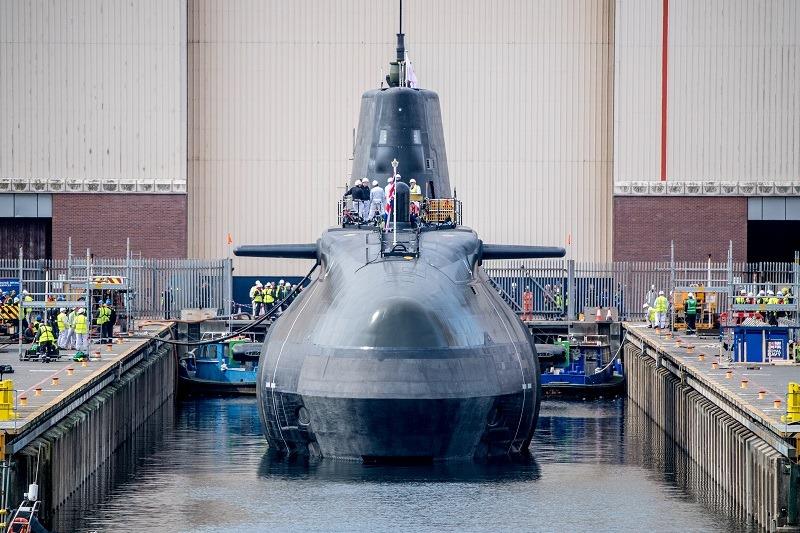
The agreement for Australia to acquire nuclear-powered attack submarines (SSNs) is the most significant part of the recent AUKUS announcement. The offer of assistance from the United Kingdom and the United States to acquire this capability places us at an excellent starting point for what will be a challenging national journey.
Such a combination of support was inconceivable five years ago when I began publicly agitating for SSNs. Today it is the right strategic decision to meet the changing circumstances facing Australia and its Western allies. It will ensure that our submarine crews have safer, more survivable and hugely more effective submarines.
Marcus Hellyer’s recent Strategist posts on the practicality of leasing detail a number technical considerations. What about the personnel required for the safe operation of our first SSN? Of all the challenges to achieving the transition to this new capability, and there will be plenty, having the right people in place may prove to be the most important.
Australia’s submarine capability is a critical asset to deter and, if necessary, to take the fight to an attacker. Sustaining it through a long transition and generating the additional submarine personnel to undergo nuclear training will be a challenge, but it’s certainly not impossible. Australia absolutely can do this if we confront it as a national challenge, with a good plan. The extra personnel we need must be trained in the first place and suitably experienced; that will take time. We can achieve it with the assistance of the navies and civilian regulators in the UK or US, or more likely both.
The safety ethos required for the nuclear power plant is a significant step up from the Collins class conventional fleet, which already exceeds those applied to a civilian airliner in risk management terms. The nuclear power safety regime will have additional layers of supervision and independent auditing oversight of the Royal Australian Navy’s and shipyards’ training, procedures and maintenance activities.
To guarantee that nuclear safety always remains paramount, it is essential that a robust framework of supervision and regulation be in place with clear lines of responsibility running from the bottom to the top of the organisation. For Australia to meet this requirement, our regulatory and technical organisations will be obliged to become competent, with the capacity to provide practical safety oversight and to enable the government to maintain sovereignty and discharge its responsibility for the safety of RAN-operated nuclear reactors.
This responsibility can’t be contracted offshore and nor could an overseas system extend its coverage or foreign personnel to undertake this in Australia without compromising our sovereignty. The Australian public (and no doubt the international community) would expect the highest standards of safety and supervision, exercised under national control, ultimately by an elected official such as the minister for defence.
The safety regime will have an independent auditing chain of responsibility involving civilian regulators such as the Australian Nuclear Science and Technology Organisation (ANSTO), which is responsible to the minister for industry and is currently focused on research into nuclear engineering. It will also involve the Australian Radiation Protection and Nuclear Safety Agency (ARPANSA) to manage Australia’s standards on nuclear protection and safety. ARPANSA is currently responsible to a third minister, the minister for health. At each level, specialist support will be required to allow the responsible officials and ministers to discharge their responsibilities for nuclear safety.
To ensure that all operations are conducted safely, the nuclear-related functions at any site must be subjected to a safety case analysis from which a site licence will be generated detailing the regulations relevant to that site together with any preconditions or restrictions. This is a complex business and its importance shouldn’t be underestimated, but it is within Australia’s reach and competence. These are functions ANSTO and ARPANSA will be able to address.
In the UK, these responsibilities are combined in the Office for Nuclear Regulation.
No doubt these structural issues will be resolved in preparing for Australia’s SSNs. At this stage, it’s sufficient to flag the broad requirements and get a sense of the number of people involved. The key requirement is that the regulatory functions be independent of the RAN’s line of authority to ensure a plurality and independence of oversight for the nuclear safety reporting chain.
So, how many people are we talking about? I estimate that the civilian auditor or regulator will need up to 24 additional staff with the required qualifications and experience, half of whom should be in place at the start of the program.
These arrangements must be in place, and the personnel must be trained, tested and certified, before the first submarine’s reactor is activated with its ‘initial criticality and power range testing’. Let’s call this phase 1 of the transition. For a British or American SSN, this occurs 18 months prior to the navy commissioning the submarine. Allowing six months for training, testing and certification, phase 1 should start two years before the first SSN is commissioned into RAN service. Many key personnel will be required earlier than this to set up arrangements.
The agreement for release of US or UK technology will almost certainly insist on Australian organisations meeting the US’s and UK’s standards as a precondition. As the US Navy’s procedures illustrate, multiple layers of protection are involved to ensure this is a no-fail activity. All of this is overseen by the director of naval reactors, a four-star admiral.
In addition to civilian organisations, the RAN would be obliged to ensure that its own infrastructure included the appropriate expertise and experience to ensure safety standards were met at all levels. In my next post, I’ll consider the uniformed personnel and some of the industry workforce required to be in place before we can operate an SSN.